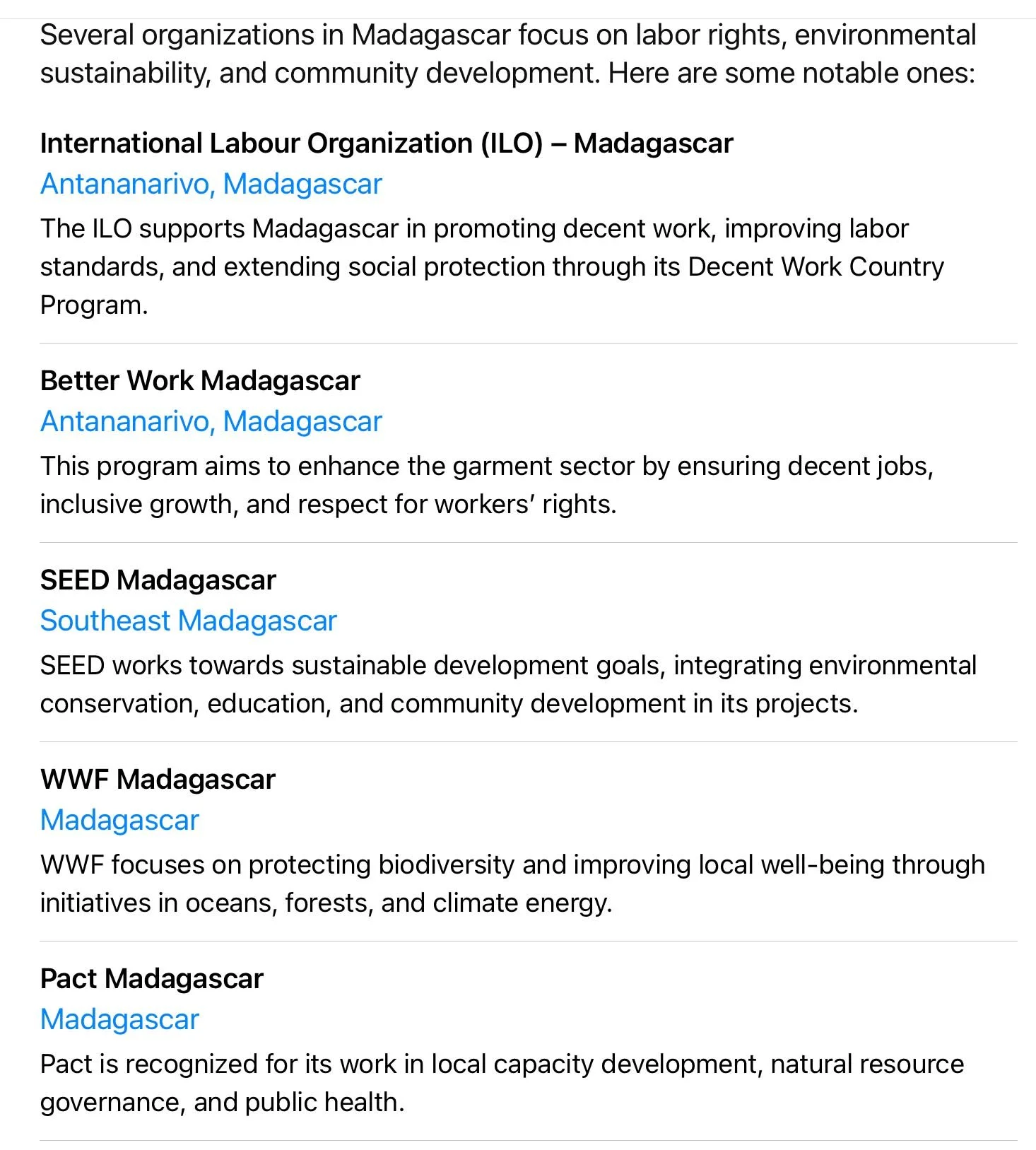https://d.docs.live.net/CFB19E964B658A17/Documents/Madagascar%20books.docx
Brick manufacturing workers in Madagascar often endure harsh working conditions, low wages, and limited labor protections, particularly in the informal sector where most brick production occurs.
⸻
🏭 Working Conditions
• Labor-intensive tasks: Workers engage in physically demanding activities such as molding, drying, and transporting bricks, often under extreme heat and without protective gear.
• Health risks: Exposure to dust, smoke, and fumes from the firing process can lead to respiratory issues, including chronic cough and chest tightness.
• Child labor: Children are sometimes involved in brickmaking, performing tasks like carrying heavy loads, which poses significant health and safety risks.
⸻
💰 Economic Challenges
• Low wages: Workers often receive minimal pay, and compensation is typically based on piecework, leading to income instability.
• Delayed payments: In some cases, wages are withheld until the end of the season, sometimes up to 8–10 months, leaving workers financially vulnerable.
⸻
⚖️ Legal and Institutional Gaps
• Limited enforcement: While Madagascar has laws against child labor and forced labor, enforcement is inconsistent, and prosecutions are rare.
• Informal sector: Much of the brickmaking industry operates informally, making it challenging to implement and monitor labor standards effectively.
⸻
🌱 Environmental Concerns
• Resource depletion: The brickmaking process consumes significant amounts of natural resources, including clay, wood, and charcoal, contributing to environmental degradation.
• Pollution: The use of traditional firing methods releases pollutants into the air, impacting both workers’ health and the surrounding environment.
⸻
🛠️ Pathways for Improvement
Efforts to improve conditions for brick manufacturing workers in Madagascar could include:
• Strengthening labor laws: Enhancing the enforcement of existing labor laws and introducing new regulations to protect workers’ rights.
• Promoting formalization: Encouraging the transition of informal brickmaking operations to formal enterprises to ensure better oversight and compliance with labor standards.
• Community engagement: Involving local communities in decision-making processes related to brick production to ensure that their needs and rights are respected.
• Environmental sustainability: Implementing cleaner and more sustainable brickmaking technologies to reduce environmental impact and improve working conditions.
If you’re interested in supporting initiatives aimed at improving the lives of brick manufacturing workers in Madagascar, consider exploring organizations that focus on labor rights, environmental sustainability, and community development in the region.
Several organizations in Madagascar focus on labor rights, environmental sustainability, and community development. Here are some notable ones:
The ILO supports Madagascar in promoting decent work, improving labor standards, and extending social protection through its Decent Work Country Program.

